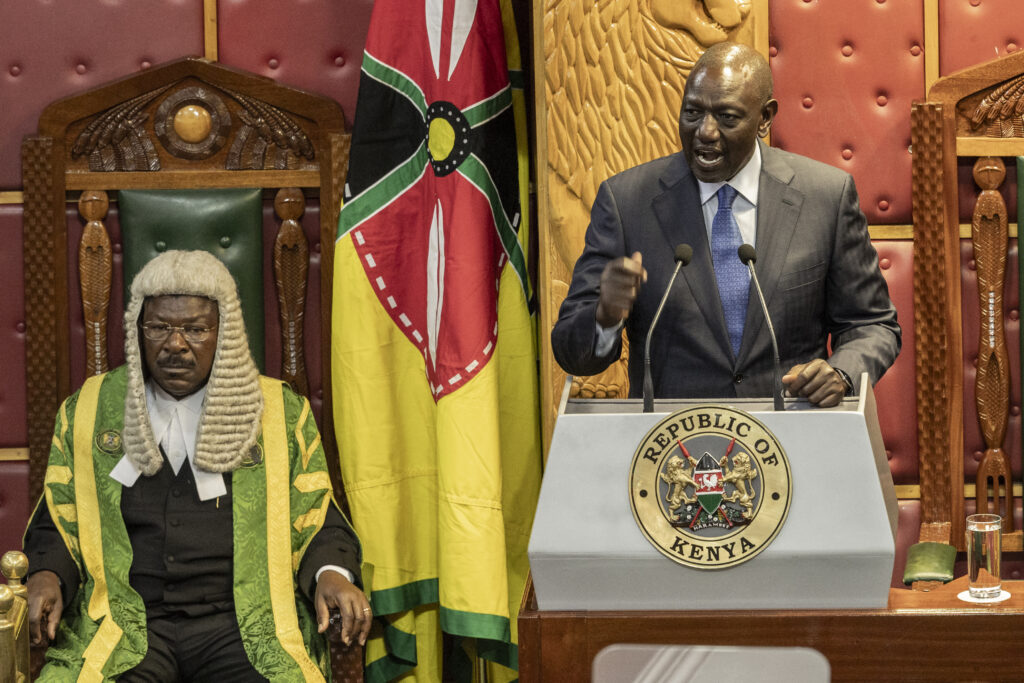Kenyan President William Ruto vowed to attract $38 billion in investment to boost infrastructure and training, provoking scepticism from economists, as he sought to change the narrative on the country’s economy following mass protests.Ruto swept to power in 2022 promising rapid economic improvements to Kenya’s youth.But the east African country has seen multiple so-called Gen Z protests in the last 18 months against economic difficulties, corruption and rights abuses.In a speech on Thursday, Ruto pointed to many improvements under his tenure, from taming inflation and boosting exports to expanding training programmes and internet access.”Our prospects are brightening, and confidence in Kenya is rising,” he said.He set out a slew of plans including 50 new massive hydroelectric dams within five to seven years, a vow to “dramatically expand power generation” with an extra 10,000 megawatts in the same period, as well as revamping roads and airports.He said the plans would cost five trillion shillings — more than a fourth of the country’s GDP — which he admitted could appear “unrealistic, even audacious, for a country like ours”.Economist XN Iraki was sceptical, telling AFP: “The figure, which is half the national debt, is too ambitious.””The test is what ordinary people feel about their daily lives: jobs, rent, food and other necessities,” he added.Financial expert and CEO Aly-Khan Satchu was also blunt, telling AFP: “Five trillion is a long shot at this juncture.”With Kenya already heavily in debt, and mass protests over tax rises last year, the room for raising revenue has been limited. Ruto said the answer was a new National Infrastructure Fund, raising money through public-private partnerships. “For every one shilling invested from privatisation proceeds, we aim to attract 10 shillings from long-term investors,” he said.Economist James Shikwati said the model could work, but warned that “the big animal in the room remains cartels and corruption”.- ‘Pessimism’ -Ruto criticised “the high priests of eternal pessimism” who “want you to believe that our economy is going in the wrong direction”.But poverty levels have remained stubbornly high — at more than a third of the population, according to the World Bank — and there are few formal jobs for the roughly one million Kenyans who turn 18 each year.That frustration has fuelled the protests, in which dozens have died at the hands of security forces. Like many African countries, Kenya is saddled with massive foreign debt, leaving the country spending more on interest payments than on health and education combined.Doctors, nurses and university lecturers have all been on strike this year over funding shortfalls and unpopular reforms. Ruto promised in 2022 to end all abductions and police brutality.But rights defenders argue that those have increased under his presidency, as have the killings of critics.Amnesty International this week alleged Ruto’s government had covertly monitored protesters’ and activists’ phones, enabling security services to track and forcibly disappear them, following anti-Ruto demonstrations.Rights groups also accuse Ruto’s government of collaborating with Tanzania and Uganda to collectively target their critics.Ruto has also faced long-standing allegations of entrenched political corruption during his tenure.
